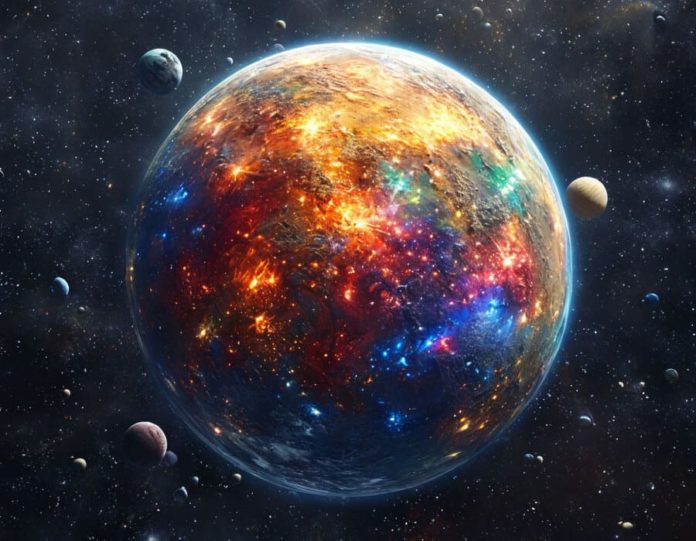Water is the key to life as we know it, and its presence in the Solar System has long been a subject of intense interest. For decades, space missions have sought to find water on planets, moons, and other celestial bodies, as the discovery of water could unlock answers to the origin of life and the potential for human colonization beyond Earth. Recent missions and research have revealed astonishing findings, suggesting that water—both in liquid and ice forms—may be more widespread in our Solar System than previously thought.
The search for water in the Solar System is crucial for several reasons:
- Life: Water is an essential ingredient for life. Finding water on other planets or moons could increase the chances of discovering extraterrestrial life, or at least the conditions that could support it.
- Human Exploration: If we are to establish colonies on the Moon, Mars, or other celestial bodies, water will be essential for drinking, growing food, and creating fuel.
- Understanding Planetary Evolution: Water plays a critical role in shaping planets, influencing their geology and atmosphere. Finding water helps scientists understand how planets form and evolve.
Recent findings on water in the solar system
Recent space missions and studies have made significant strides in the search for water, with surprising discoveries in places we once thought were dry and barren. Let’s take a look at some of the most exciting recent findings.
1. Water on the Moon
For years, the Moon was considered a dry, lifeless place. However, recent discoveries have changed this perception.After NASA’s Lunar Reconnaissance Orbiter (LRO) and the LCROSS mission detected water ice in shadowed craters near the Moon’s poles, this discovery was confirmed in 2020 by SOFIA, a space instrument.
The discovery of water on the Moon is particularly important for future lunar missions, including NASA’s Artemis program, which aims to establish a sustainable human presence on the Moon. Water from the Moon’s surface could potentially be used by astronauts, reducing the need to transport large quantities of water from Earth.
2. Mars: frozen water beneath the surface
Mars has long been considered one of the most promising candidates for finding water, and recent missions have confirmed its presence in various forms. NASA’s Curiosity Rover has detected ancient streambeds and signs of liquid water in Mars’ past. More recently, the Mars Reconnaissance Orbiter (MRO) found evidence of large reservoirs of frozen water beneath the surface, particularly at mid-latitudes.
In 2020, researchers using data from the Mars Express Orbiter discovered a network of salty lakes beneath the planet’s south pole. While these lakes are incredibly cold and salty, they may still harbor microbial life. These findings raise the exciting possibility that liquid water could still exist on Mars, albeit in extreme environments.
3. Europa: a potential ocean world
One of the most intriguing discoveries in the search for water comes from Europa, one of Jupiter’s moons. The subsurface ocean beneath Europa’s icy crust is believed to hold more water than all of Earth’s oceans combined. ItNASA’s Hubble Space Telescope.Water vapor plumes have been detected from Europa’s surface, indicating that water from the subsurface ocean is being transported into space.
NASA’s upcoming Europa Clipper mission, which is scheduled to launch in the 2020s, will examine plumes and determine if they could provide the necessary conditions for life in Europa’s ocean. It is possible that Europa’s ocean, which is heated by Jupiter’s gravity due to tidal forces, could be a breeding ground for extraterrestrial life in our Solar System.
4. Enceladus: geysers of water vapor
Saturn’s moon Enceladus is another exciting location in the search for water. In 2005, NASA’s Cassini spacecraft made a startling discovery: giant geysers of water vapor and ice particles erupting from cracks in Enceladus’s icy surface. These plumes suggest the presence of a subsurface ocean beneath Enceladus’s ice, similar to Europa’s.
The water from these geysers contains organic molecules, raising the possibility that Enceladus’s ocean might harbor microbial life. The discovery of water vapor on Enceladus has made it one of the most promising places in the Solar System for studying the potential for life beyond Earth.
5. Water on asteroids
Asteroids, once thought to be dry and lifeless, are now known to harbor water. Recent missions, such as NASA’s OSIRIS-REx and the Japanese Hayabusa2 mission, have found evidence of water in the form of hydrated minerals on asteroids Bennu and Ryugu. These findings suggest that asteroids may have played a crucial role in delivering water to Earth billions of years ago.
Water-rich asteroids could also be important for future space exploration. Mining water from asteroids could provide fuel and supplies for long-duration missions to Mars and beyond, reducing the need to transport resources from Earth.
6. Pluto’s Icy surprises
Though far from the Sun, Pluto has revealed surprising evidence of water ice on its surface. Data from NASA’s New Horizons mission, which flew by Pluto in 2015, showed that the dwarf planet’s surface contains large areas of frozen water. This discovery was unexpected, as Pluto’s distance from the Sun makes it an extremely cold and inhospitable environment.
The presence of water ice on Pluto raises questions about the potential for similar icy worlds beyond Neptune, in the Kuiper Belt, to also harbor water. Future missions to this distant region of the Solar System may reveal even more icy surprises.
The future of water exploration in the solar system
The search for water in the Solar System is far from over. Upcoming missions like NASA’s Artemis program, the Europa Clipper, and potential missions to Mars and asteroids will continue to explore the presence and distribution of water beyond Earth.
Moreover, the discovery of water on various celestial bodies has opened the door for the possibility of human exploration and colonization. Finding accessible water on the Moon, Mars, and beyond could provide the resources needed for humans to establish permanent colonies on other worlds.
The search for water in the Solar System has yielded remarkable findings in recent years, with evidence of water on the Moon, Mars, Europa, Enceladus, asteroids, and even Pluto. These discoveries not only increase the chances of finding extraterrestrial life but also provide critical resources for future space exploration. As missions continue to explore the depths of our Solar System, the quest to understand the role of water in planetary evolution and the potential for life will remain a top priority.















